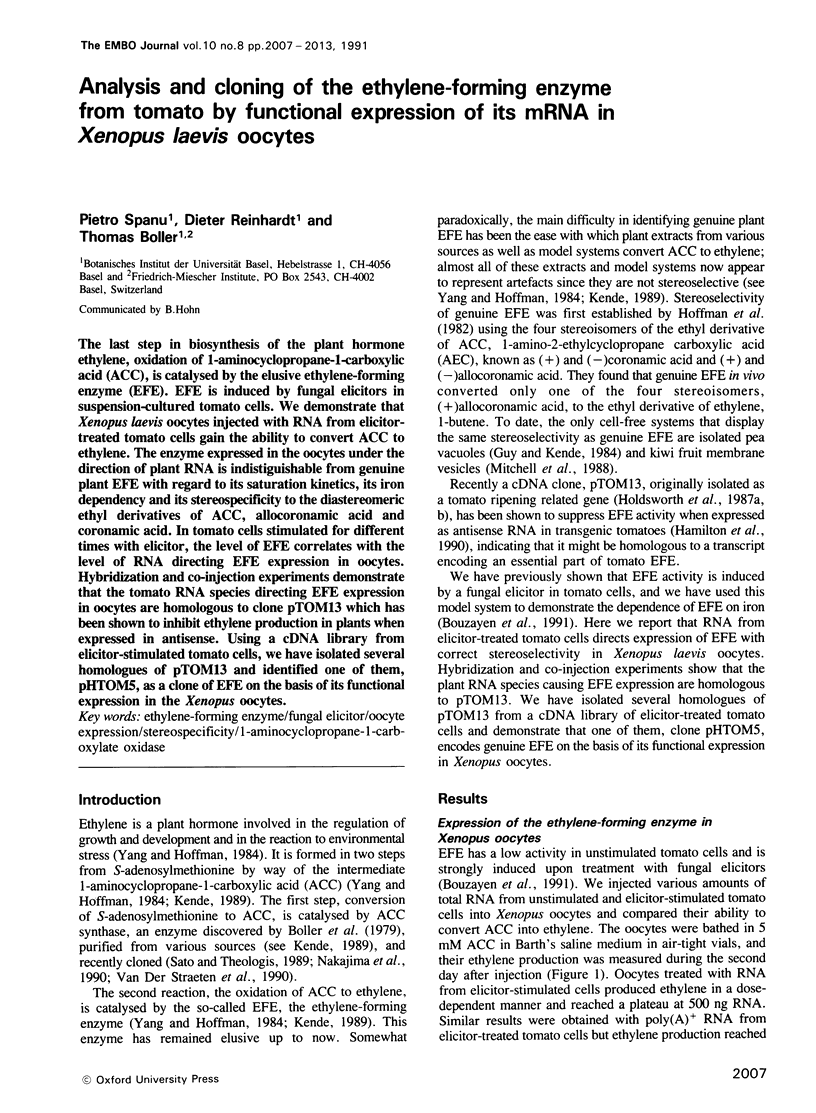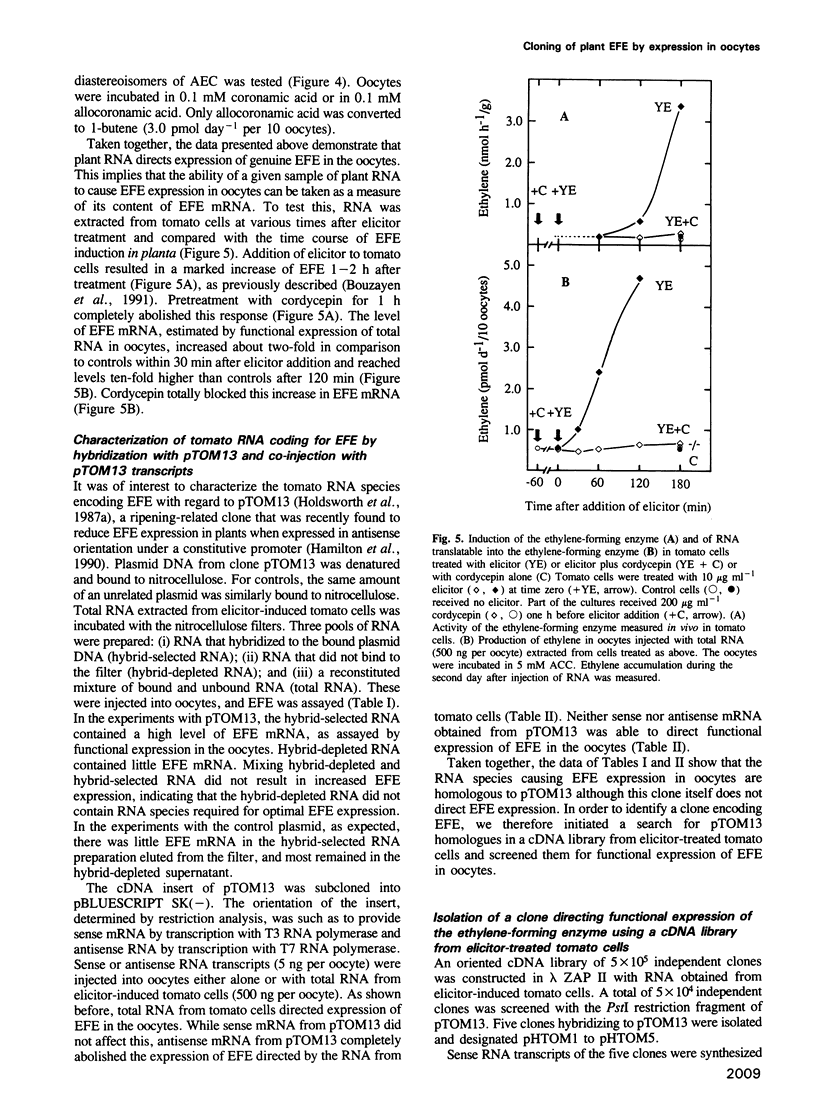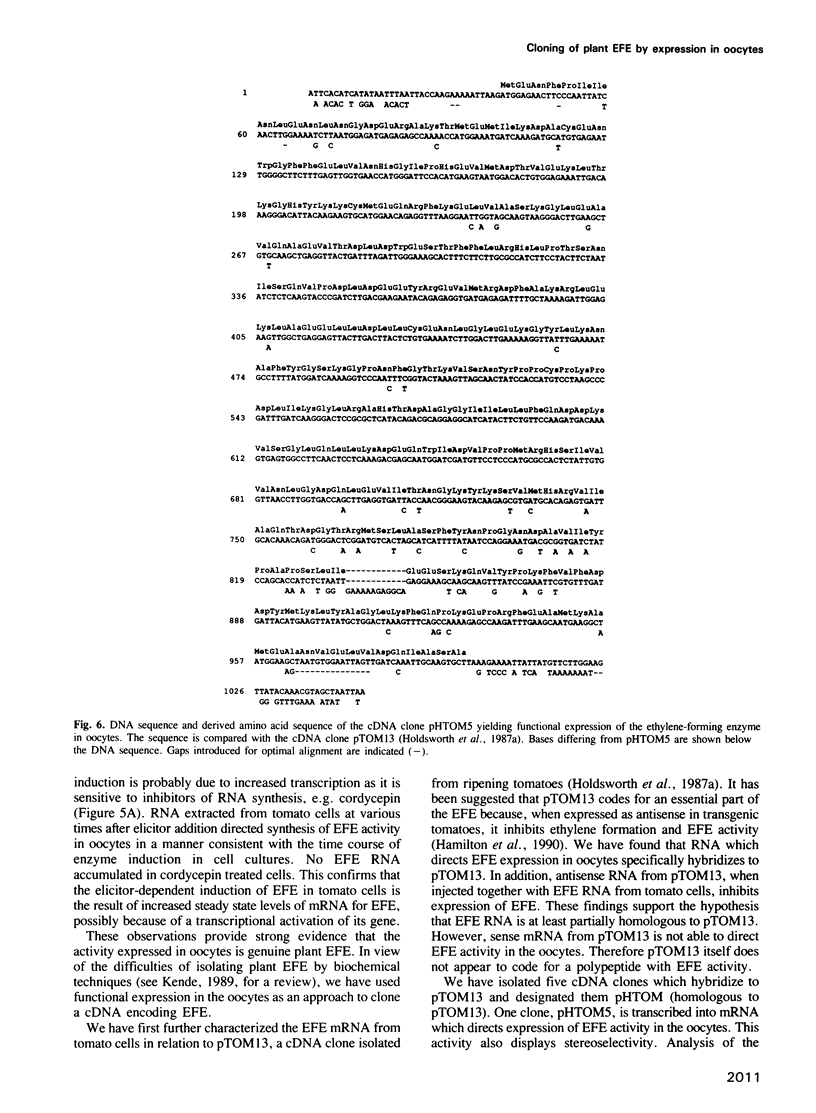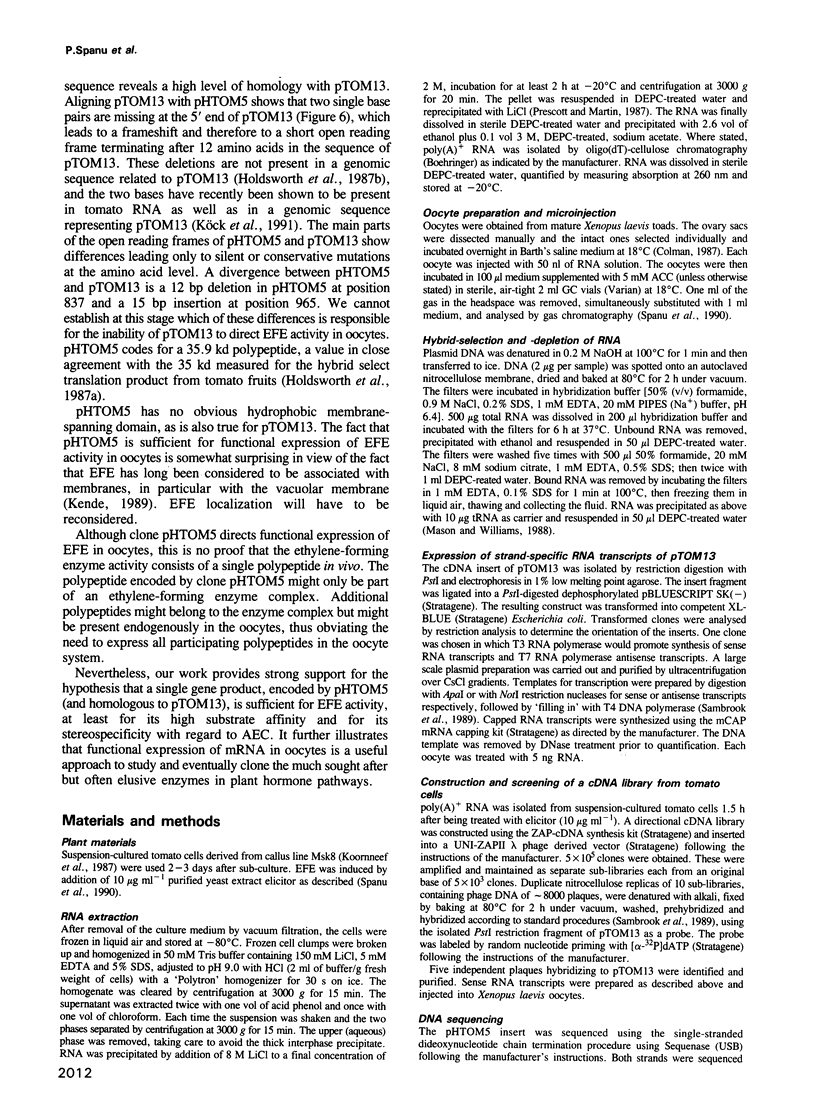Abstract
The last step in biosynthesis of the plant hormone ethylene, oxidation of 1-aminocyclopropane-1-carboxylic acid (ACC), is catalysed by the elusive ethylene-forming enzyme (EFE). EFE is induced by fungal elicitors in suspension-cultured tomato cells. We demonstrate that Xenopus laevis oocytes injected with RNA from elicitor-treated tomato cells gain the ability to convert ACC to ethylene. The enzyme expressed in the oocytes under the direction of plant RNA is indistinguishable from genuine plant EFE with regard to its saturation kinetics, its iron dependency and its stereospecificity to the diastereomeric ethyl derivatives of ACC, allocoronamic acid and coronamic acid. In tomato cells stimulated for different times with elicitor, the level of EFE correlates with the level of RNA directing EFE expression in oocytes. Hybridization and co-injection experiments demonstrate that the tomato RNA species directing EFE expression in oocytes are homologous to clone pTOM13 which has been shown to inhibit ethylene production in plants when expressed in antisense. Using a cDNA library from elicitor-stimulated tomato cells, we have isolated several homologues of pTOM13 and identified one of them, pHTOM5, as a clone of EFE on the basis of its functional expression in the Xenopus oocytes.
Full text
PDF






Selected References
These references are in PubMed. This may not be the complete list of references from this article.
- Hoffman N. E., Yang S. F., Ichihara A., Sakamura S. Stereospecific conversion of 1-aminocyclopropanecarboxylic Acid to ethylene by plant tissues : conversion of stereoisomers of 1-amino-2-ethylcyclopropanecarboxylic Acid to 1-butene. Plant Physiol. 1982 Jul;70(1):195–199. doi: 10.1104/pp.70.1.195. [DOI] [PMC free article] [PubMed] [Google Scholar]
- Holdsworth M. J., Bird C. R., Ray J., Schuch W., Grierson D. Structure and expression of an ethylene-related mRNA from tomato. Nucleic Acids Res. 1987 Jan 26;15(2):731–739. doi: 10.1093/nar/15.2.731. [DOI] [PMC free article] [PubMed] [Google Scholar]
- Holdsworth M. J., Schuch W., Grierson D. Nucleotide sequence of an ethylene-related gene from tomato. Nucleic Acids Res. 1987 Dec 23;15(24):10600–10600. doi: 10.1093/nar/15.24.10600. [DOI] [PMC free article] [PubMed] [Google Scholar]
- Kende H. Enzymes of ethylene biosynthesis. Plant Physiol. 1989 Sep;91(1):1–4. doi: 10.1104/pp.91.1.1. [DOI] [PMC free article] [PubMed] [Google Scholar]
- Sato T., Theologis A. Cloning the mRNA encoding 1-aminocyclopropane-1-carboxylate synthase, the key enzyme for ethylene biosynthesis in plants. Proc Natl Acad Sci U S A. 1989 Sep;86(17):6621–6625. doi: 10.1073/pnas.86.17.6621. [DOI] [PMC free article] [PubMed] [Google Scholar]
- Spanu P., Felix G., Boller T. Inactivation of stress induced 1-aminocyclopropane carboxylate synthase in vivo differs from substrate-dependent inactivation in vitro. Plant Physiol. 1990 Aug;93(4):1482–1485. doi: 10.1104/pp.93.4.1482. [DOI] [PMC free article] [PubMed] [Google Scholar]
- Van der Straeten D., Van Wiemeersch L., Goodman H. M., Van Montagu M. Cloning and sequence of two different cDNAs encoding 1-aminocyclopropane-1-carboxylate synthase in tomato. Proc Natl Acad Sci U S A. 1990 Jun;87(12):4859–4863. doi: 10.1073/pnas.87.12.4859. [DOI] [PMC free article] [PubMed] [Google Scholar]


